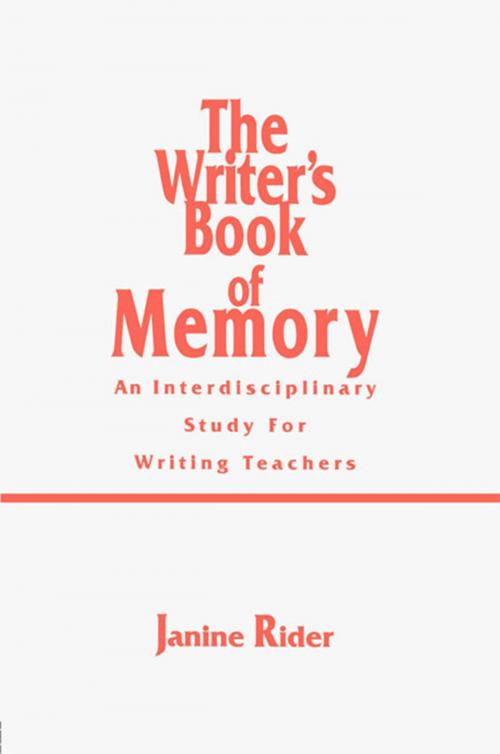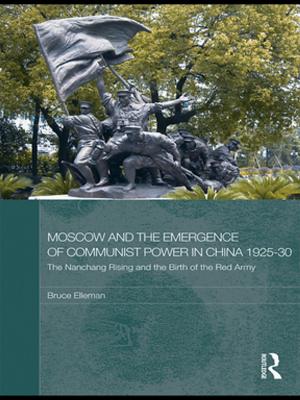The Writer's Book of Memory
An Interdisciplinary Study for Writing Teachers
Nonfiction, Reference & Language, Language Arts, Public Speaking, Rhetoric, Communication| Author: | Janine Rider | ISBN: | 9781136687617 |
| Publisher: | Taylor and Francis | Publication: | November 5, 2013 |
| Imprint: | Routledge | Language: | English |
| Author: | Janine Rider |
| ISBN: | 9781136687617 |
| Publisher: | Taylor and Francis |
| Publication: | November 5, 2013 |
| Imprint: | Routledge |
| Language: | English |
Memory has long been ignored by rhetoricians because the written word has made memorization virtually obsolete. Recently however, as part of a revival of interest in classical rhetoric, scholars have begun to realize that memory offers vast possibilities for today's writers. Synthesizing research from rhetoric, psychology, philosophy, and literary and composition studies, this volume brings together many historical and contemporary theories of memory. Yet its focus is clear: memory is a generator of knowledge and a creative force which deserves attention at the beginning of and throughout the writing process.
This volume emphasizes the importance of recognizing memory's powers in an age in which mass media influence us all and electronic communication changes the way we think and write. It also addresses the importance of the individual memory and voice in an age which promotes conformity. Written in a strong, lively personal manner, the book covers a great deal of scholarly material. It is never overbearing, and the extensive bibliography offers rich vistas for further study.
Memory has long been ignored by rhetoricians because the written word has made memorization virtually obsolete. Recently however, as part of a revival of interest in classical rhetoric, scholars have begun to realize that memory offers vast possibilities for today's writers. Synthesizing research from rhetoric, psychology, philosophy, and literary and composition studies, this volume brings together many historical and contemporary theories of memory. Yet its focus is clear: memory is a generator of knowledge and a creative force which deserves attention at the beginning of and throughout the writing process.
This volume emphasizes the importance of recognizing memory's powers in an age in which mass media influence us all and electronic communication changes the way we think and write. It also addresses the importance of the individual memory and voice in an age which promotes conformity. Written in a strong, lively personal manner, the book covers a great deal of scholarly material. It is never overbearing, and the extensive bibliography offers rich vistas for further study.















